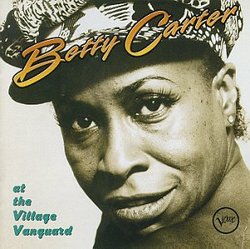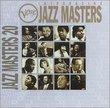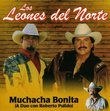| All Artists: Betty Carter Title: At the Village Vanguard Members Wishing: 1 Total Copies: 0 Label: Polygram Records Original Release Date: 1/1/1971 Re-Release Date: 10/19/1993 Genres: Jazz, Pop Styles: Avant Garde & Free Jazz, Modern Postbebop, Vocal Jazz, Bebop, Vocal Pop Number of Discs: 1 SwapaCD Credits: 1 UPC: 731451985126 |
Search - Betty Carter :: At the Village Vanguard
 | Betty Carter At the Village Vanguard Genres: Jazz, Pop
|
Larger Image |
CD DetailsSimilar CDs |
CD ReviewsThe peak of vocal jazz? oxdt | UK | 04/21/2005 (5 out of 5 stars) "This was the first album Carter released on her own Bet-Car label in 1970, and while it was re-released by Verve it looks like it's now out of print, what a shame. Carter really does blow every other jazz singer of the last thirty years out of the water, and while this album is rather rough round the edges, both in its frankly quite poor recording quality, and in that it's about as abrasive as she got, it all lends to the freshness, the feeling of spontaneity - this is real jazz, immediate creativity, music people got excited about, and will excite you too, not just mood music. It's ironic that jazz singers have been so consistently dull when, as Carter demonstrates here, the voice can potentially be so much more interesting than any musical instrument, she has so much control over the timbre and texture of her voice and her harmonics are advanced - a brass player would be hard pressed to match her.
And of course there's her sheer power and stamina; while there's no lightning stuff on here like "Tight" or "My Favourite Things", "Surrey with the Fringe on Top" is an energetic scat lasting nearly 8 minutes, "Ego" and "Please Do Something" (the only original track on the album) are performed with energy and wit, and she really digs in on "Girl Talk". As usual she contrasts these with some ultra-slow renditions of "Heart and Soul", "Body and Soul" and "The Sun Died", just as technically risky in their way, and they'll make you just melt. I think the highlight is the "I Didn't Know What Time It Was"/"All the things you are"/"I could write a book" medley which they lifted for the "Finest Hour" compilation, so much variation in such a short of space of time and she weaves them together seamlessly. According to the liner notes this is the last time she played with "accompanists" rather than the young musicians she would adopt in future as fellow players. I can see why she made the change, but the fact the musicians hold back a bit here I think gives her even more licence to roam free. She's certainly pushing things further than in the two albums of the preceding year, it's arguably the most adventurous thing she ever did. So in conclusion, perhaps not the best introduction to Betty Carter (try "The Audience with..." or maybe "Inside Betty Carter") but once you've got the hang of her this may well end up being your favourite album. In my humble opinion this album should have been the launch pad for all jazz singers which followed, but I haven't found one other truly inventive straight-ahead jazz singer. However moving into the avant-garde jazz singers there are a few worth mentioning in case you're interested. Patty Waters (who had been and gone by the time this album was recorded, though she returned in the nineties) can match Billie Holiday pound for pound when it comes to unpacking the heart of a standard, and will give you a new idea of the meaning of free jazz. Annette Peacock might be worth checking out, as are the vocal acrobatics of the British singer Maggie Nicols. Still, the fact that all of these women began their careers in the 1960s seems to give credence to my fear that while jazz isn't dead, jazz singing certainly is moribund. We desperately need another Betty Carter." |

 Track Listings (11) - Disc #1
Track Listings (11) - Disc #1

